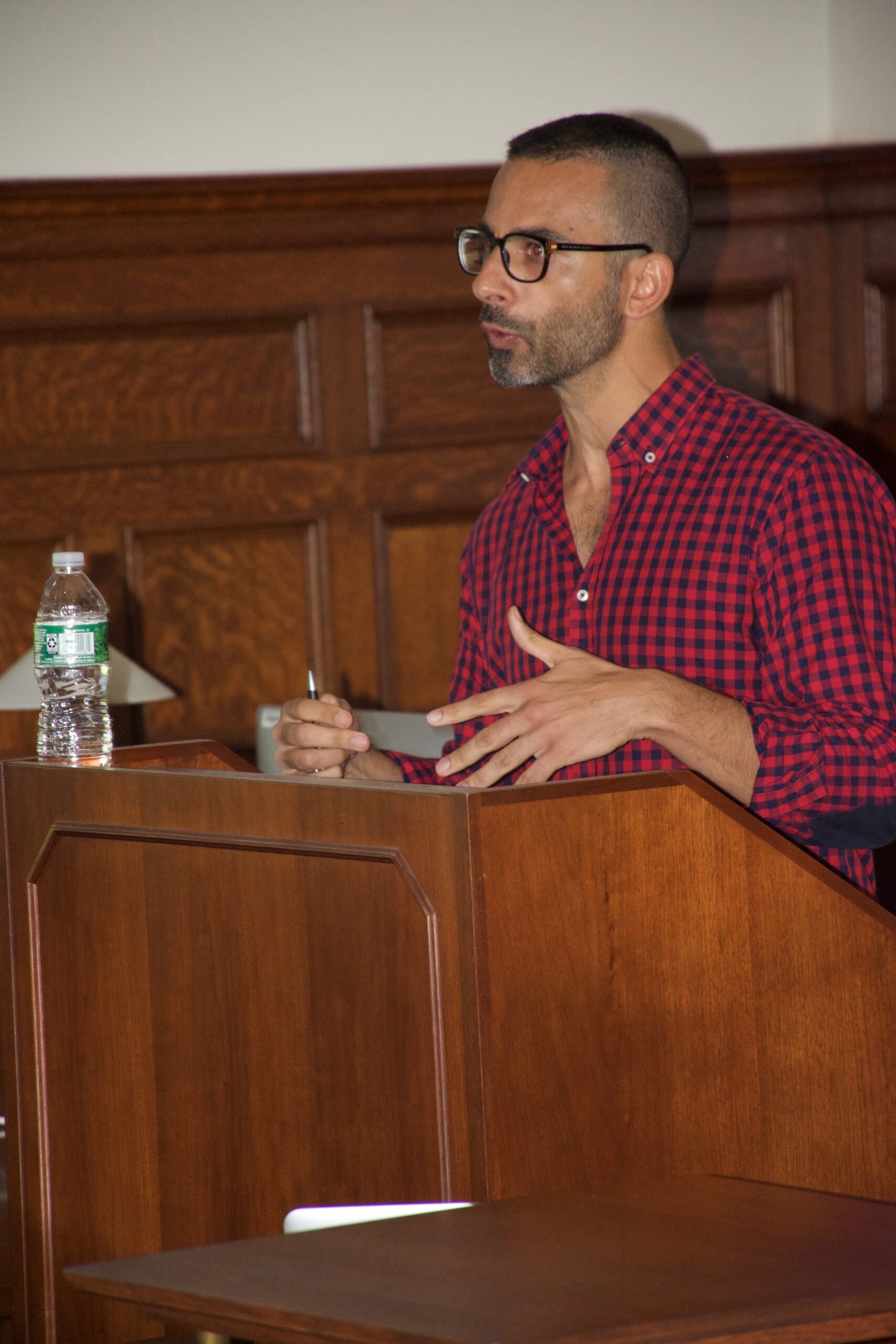‘Call Me by Your Name:’ deconstructing the universal utopia
September 7, 2018
 Brennan Clark
Brennan ClarkFruit always ripe, gentle chords on the guitar, dancing to The Psychedelic Furs and teenage bodies glistening under the Mediterranean sun—vivid colors and ’80s music set the scene for the sensual gay romance of “Call Me by Your Name.” However, in his Monday night lecture, Associate Professor of Italian and Cinema Studies at University of Oregon Sergio Rigoletto unearthed the hidden symbolism beneath the film’s beautiful imagery, haunting the picture-perfect love story.
Titled “The Universal Tale and the Haunting Specters of Call Me by Your Name,” Rigoletto’s lecture was hosted by the Department of Romance Languages and Literatures in conjunction with a class on Italy’s cinema of social engagement taught by Allison Cooper, assistant professor of romance languages and literatures and cinema studies.
“It’s really a pleasure to expand out of the classroom and into the community with some of the films we’re watching in this course, and especially [Call Me by Your Name] which obviously is a great interest to students at Bowdoin,” said Cooper, addressing a room packed with students, alums, professors and community members in Hubbard Hall.
Since its premiere at the 2017 Sundance Film Festival, “Call Me by Your Name” has received critical acclaim, and has been particularly praised for capturing a sense of universal love between the two characters, Elio (Timothée Chalamet) and Oliver (Armie Hammer). Rigoletto explained the film’s emotive powers in telling a gay love story not tinged by despair or tragedy.
“The film seems to transcend a sense of historical particularity,” said Rigoletto. “It depicts a world of beauty—a timeless Arcadia [where] Elio’s and Oliver’s romance seems to blossom freely.”
Yet despite the effortless charm of such an idyllic, otherworldly utopia, Rigoletto challenged this language of “universality,” noting especially the term’s troubling singularity.
“Universal claims are, in a sense, universalizing claims,” he said. “Rather than purely descriptive, they act on an underlying desire to repress difference, particularity and pluralism, producing the conditions that they claim to describe.”
“Nobody that I know has ever felt the need to say that the film ‘Titanic’ is a universal love story, and it’s universal despite being about heterosexual romance,” he added.
Instead, Rigoletto approached the romance with a different set of semiotics—focusing on the dichotomy between the film’s idealized homosexuality and the often neglected presence of its implicit, underlying anxiety.
“The claim I want to make is ‘Call Me by Your Name’ is indeed a universal [story], not despite, but because of the function and significance of homosexuality in the film,” said Rigoletto. “[It] is a universal story because of the central, somewhat inescapable relevance of homosexuality in the story.”
Indeed, the film’s storyline centers around the sexual awakening and coming-of-age of Elio, a 17-year-old Italian boy upon the arrival of Oliver, a handsome American graduate student. The story ends with Oliver leaving and thus reverting back to the norm of heterosexuality which, according to Rigoletto, is evidence of the unspoken, internal fear that quietly looms over the romance.
“In the film, this crippling sense of fear does not attach itself exclusively to Elio,” said Rigoletto. “Rather, it is a strange, dispersed effect that seems to affect the whole film like a cloud [that] haunts the film, spreading through its fabric.”
Analysis aside, Rigoletto does not negate his love for “Call Me by Your Name” with the realization of its insidious apprehension. In fact, the film lends itself to hopeful aspirations of constructing and presenting a world, although currently unattainable, that could sustain despite the fear and uncertainty.
“I love this film, because it carries a desire for a world in which this difference of sexuality may be irrelevant,” said Rigoletto. “The film breathes with this desire, desire for this world to exist.”
“The film stages for us a fantasy, a world of supporting, gay-friendly parents, a world without homophobic bullies [and] without gay teenagers killing themselves,” he adds. “But it also confronts us with the impossibility for that fantasy to become something else other than fantasy.”
For the audience, Rigoletto’s poignant dissection provided a new mode of interpretation, opening up a sea of possibilities, one shared by all great works of art.
“The film, in general, resonated with so many people,” said Cecilia de Havenon ’21. “I think it’s really important that it’s not just a beautiful film. There are differences between universal gay films and universal straight films, but this one kind of transposes all of that and comes together.”

Comments
Before submitting a comment, please review our comment policy. Some key points from the policy: